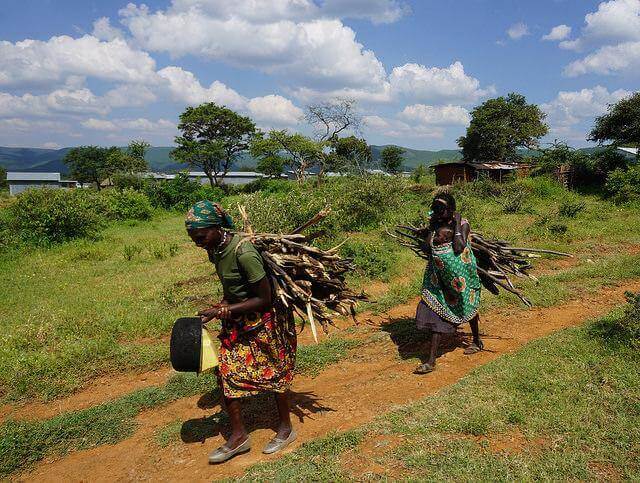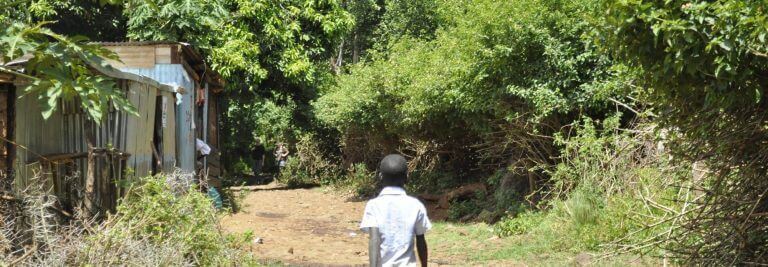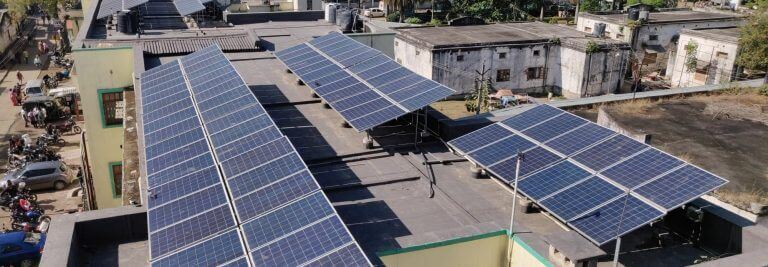In Kenya, extraordinarily courageous women are battling climate change by using environmentally friendly solar products in the most difficult of social conditions. Yet the Kenyan companies that are providing those products remain under-supported by the international investing community.
Below, we’ll highlight a few of these women and the local businesses that are enabling their work, and discuss the unique challenges they face – and why investors should get off the sidelines and fund them.
THE LIFE-CHANGING IMPACT OF SOLAR PRODUCTS
Mercy Oloimoja, a 34 year-old Masai lady, lives in Kajiado County south of Nairobi. The county is particularly vulnerable to climate change, and droughts have become increasingly frequent. Oloimoja was married at age 16, while she was still in school, and has four children. She used to run a small shop in a nearby hamlet, earning 120,000 KSh (about US $1,100) per year. But five years ago, at the age of 29, she convinced her husband to buy her a piece of land so she could start farming.
In the arid and semi-arid region to which Kajiado belongs, it is impossible to farm successfully without access to irrigation. So Oloimoja’s husband agreed to give her enough money to dig a borewell, build a tank and buy a solar pump. She now stores rain water from the few short – but heavy – downpours that happen in her region. The water can then be used for irrigation during the rest of the year. She uses the solar pump to irrigate her farm throughout the day, without having to pay for electricity. It has now been five years since she purchased the pump, and she has only had problems with it twice. In both cases, the company she purchased it from was able to solve the problem within a couple of days. This reliable solar product system has enabled Oloimoja to build a green oasis in this hot and dusty area. She now grows onions on a 10-acre plot, a crop which has four growing seasons in a year. She employs 17 permanent workers, and 30 contract workers during the transplanting season. After paying wages and other expenses, she makes about 200,000 KSh (about US $1,840) per season – which means her yearly income has grown by over 560%.
Josephine Mutinda, a 41-year-old Kamba lady, lives in the adjoining Makueni County, also one of Kenya’s arid and semi-arid counties. She has completed her secondary school education and works for a company selling solar lights. The job requires her to go out in the evening to people’s homes, to demonstrate to them how the lights work. When she started working at night, her husband used to beat her, as he thought that she was prostituting herself. He wanted to throw her out of their home – but she persisted, taking him to company meetings. Now she is the company’s best sales agent, earning about 30,000 KSHs (US $276) per month. She says her husband is now “her biggest fan.” He has since given up his job as a casual labourer and now works with her full-time in selling solar lights. She uses the money she makes from the business to pay the school fees for her three children, and has started a poultry business with the additional income. She has also built a concrete water tank.
In Siaya County, adjoining Lake Victoria in the western part of the country, Luo women are forced to fend for themselves in AIDS-ravaged villages, because their husbands are either dead or absent. Selling fish is the traditional livelihood for these women, but the fish catch has been declining. The fishermen often prefer to give fish to the women who will provide them with sexual favours. The practice even has a name: “jaboya,” which roughly translates as “sex for fish.” To survive in this environment, some women have bought boats using loans from local community-based organizations and informal saving groups. They rent out the boats to fishermen who, by way of rent, sell them part of the catch, at a price discount of about 25-30%. The women now have an assured supply of fish, and an opportunity to sell any surplus at a price differential between what they pay and what they can get on the open market. They have also procured solar lights for these boats, paying for them on a “pay-as-you-use” basis. By using solar lights they save Ksh 400 – 1200 per night (US $3.70 – $11.00) on kerosene, depending on the size of the boat. They use the savings to hasten the repayment of their loans for the boats, and they are no longer obliged to provide unwanted sexual favours.
THE IMPACT OF GENDER-CONSCIOUS BUSINESS STRATEGIES
International bodies such as the UN’s Food and Agriculture Organization have been saying for a long time that women are especially vulnerable to climate change and have a lot to gain from climate-friendly technologies. But it’s not always easy to help women use these technologies. The International Renewable Energy Agency report “Renewable Energy: A Gender Perspective” identifies a few of the key challenges they face, including cultural and social norms, inequity in the ownership of assets, and less access to opportunities for education and technical skill development. Helping women use solar products requires the dogged work of entrepreneurs who have decided to consciously incorporate gender issues into their business strategy – and that’s exactly what some forward-thinking companies are doing.
For instance, the solar pumps used by Mercy Oloimoja are sold by a company called Epicenter Africa, which was founded and is managed by a female environmental engineer named Mary Njue. She worked for a leading pump company in Kenya for nine years before she ventured out on her own, and now employs women engineers to provide technical service for the pumps. When these female technicians arrive in remote areas such as Kajiado, many customers are surprised, as this work is often done by men. But both current and aspiring women farmers find it inspiring.
In another example of a gender-conscious business model, the company Josephine Mutinda works for, Deevabits, employs almost exclusively female sales agents, after founder David Wanjau found that they were four times more effective than their male counterparts. These women are natural networkers, and they work harder to succeed because they appreciate the formal business opportunity. Deevabits has also developed special programs for them. The company provides the women with sample products for free. It also focuses on training, since many of the women have not even completed secondary school. The sales agents are called “Mama Solar,” and this gives them a sense of confidence.
Finally, the solar fishing lights used by Luo women in Siaya County are sold by Mwezi Solar, two of whose founders, Teddy Odindo and Jack Ayieko, are from the area. The female boat owners there had earlier bought cookstoves from the company, which had proven to be of high quality. It also helped that the company lowered the initial deposit the women were required to pay, realizing that they were eager to buy – and that they represent a potentially larger market.
RECOGNIZING LOCAL ENTREPRENEURS – NOT JUST EXPAT-OWNED COMPANIES
Some Kenyan entrepreneurs have gotten international recognition for their work. For instance, John Magiro has set up a mini-grid to generate electricity from a waterfall and power a community in Murang’a County, the heartland of agriculture in Kenya. Magiro Hydro Electricity Limited’s customers in the local shopping center appreciate the prompt customer service and flexible payment terms he provides. Women store owners can keep their shops open for longer, as they feel more secure after dark due to electric lighting.
John Magiro is a school dropout and does not know English. He employs girls just out of school to run the power plant and manage customer service. In the local Kikuyu tribe, the word for woman is “mtumia” (one who does not speak). But Magiro’s employees are hardly that: They are confident young women who are running a technical business. Magiro Hydro Electricity Limited was the 2016 SAG-SEED award winner, selected by SEED, a global partnership for the promotion of social and environmental entrepreneurship.
But even with this recognition, none of the Kenyan entrepreneurs mentioned above have received substantial funding to expand their businesses. International investors have preferred to pour millions into expat-owned “pay-as-you-go” companies with the hope that their rapid growth will electrify the continent – in spite of some investor concerns about a growing hype cycle in the sector. Local angel investors have also stayed away, preferring to invest in technology and e-commerce companies.
As the “foreign versus local” debate rages in international media, it might be useful to shift the focus to consumers. It is not easy for women customers to overcome deep-rooted social challenges and take advantage of modern technology. The process of attracting and serving these customers takes time, and is incompatible with expectations of rapid growth. Investors who want to see social change via technology adoption should apply a gender lens to their investing. They will also have to give entrepreneurs time to experiment and determine what works with customers and employees.
If they’re wise enough to recognize it, investors will see that local entrepreneurs are giving a voice to the women of Kenya. It is the job of the investing community to wake up and listen.
Note: The authors would like to thank their colleagues at DOEN Foundation, Wallace Global Fund and the World Resources Institute, without whom this work would not have been possible. This support also enabled the publication of the paper on The Impact Investors’ Blind Spot: Local Clean Energy Entrepreneurs in Kenya.



